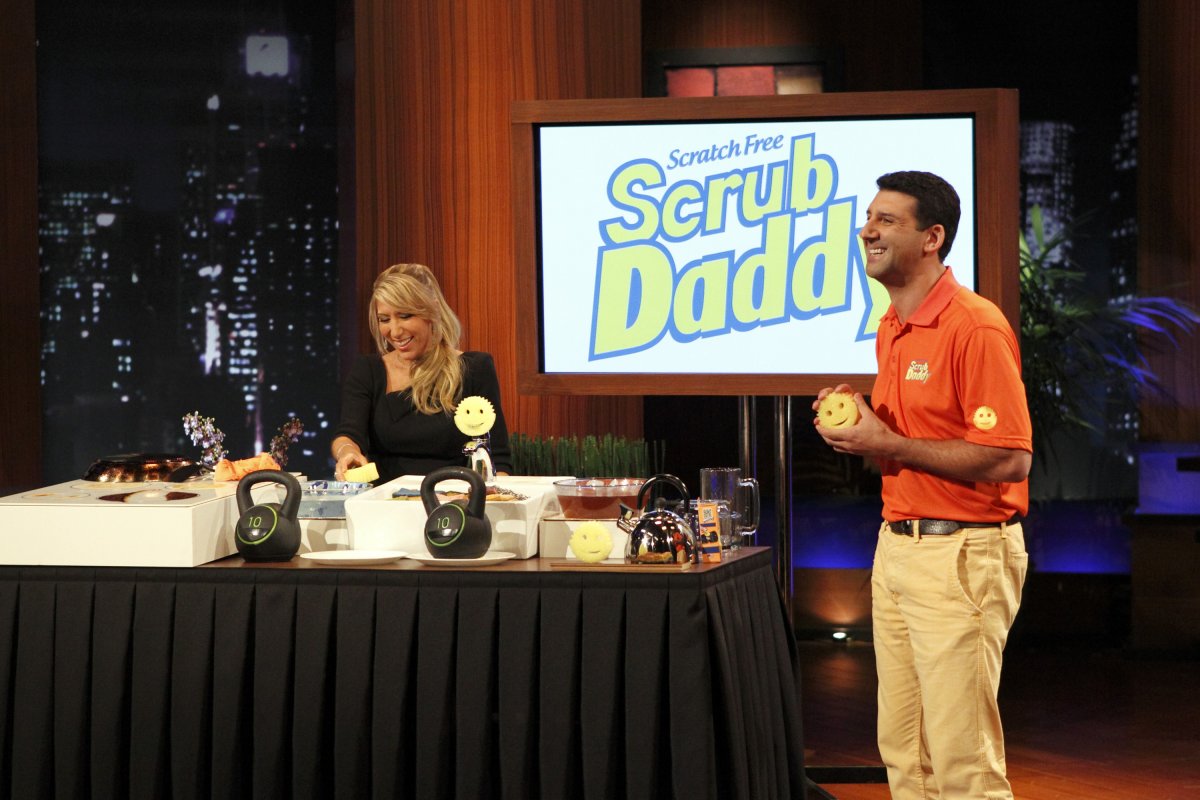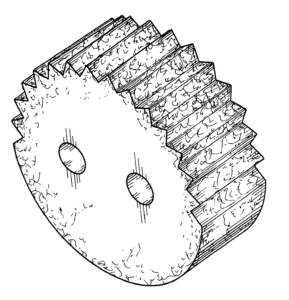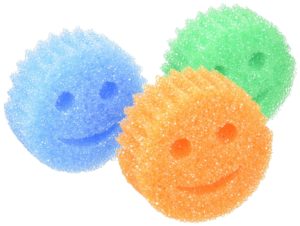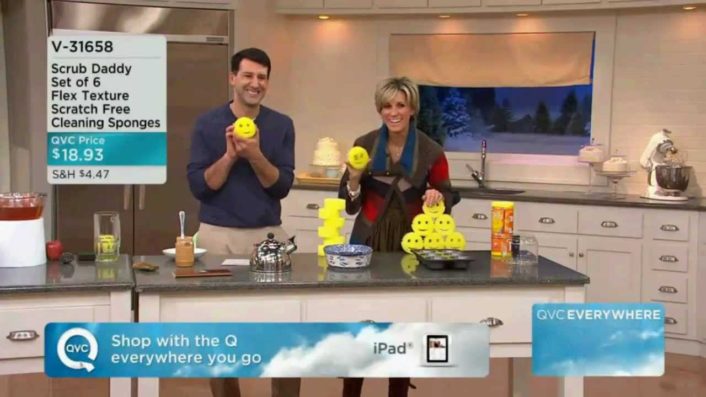Three Things An Entrepreneur Should Do to Protect Their Business Idea
We live in a time of incredible change with entrepreneurs and inventors creating new products and services that impact our lives in big and small ways.
Groundbreaking technologies, including the iPhone (2007), iPad (2010) and consumer broadband access are all less than 15 years old. A collaborative effort of thousands of engineers, designers and scientists, these are the blockbusters that most think about when they hear the word, “invention”.
Yet, I also think about the small ideas that have been transformed by entrepreneurs into products or services that make our lives better. While their economic impact might not be measured in the billions, they can and do offer utility that is worth attention and investment.
While I’m not a regular viewer, who hasn’t heard about the TV show “Shark Tank” where inventors and entrepreneurs present their “small” ideas to a panel of five high-profile entrepreneurs in the hopes of securing funding. The show is fun because the people presenting their inventions are just regular folk who have a good idea that needs financing and seasoned help to make them a success. Shark Tank is a show that promotes the notion that anyone who has a good idea can potentially turn that idea into a sizeable chunk of money.
TV Show Shark Tank’s #1 Inventor’s Success Story
Would you like to know the biggest success story in the ten year history of Shark Tank? It’s not a high-tech device or new cloud-based digital service. It’s a smiley-faced sponge.
That’s right. A sponge.
 The inventor, Aaron Krause, was a car detailer by trade. Over the years he could not find a polishing bonnet that was aggressive enough to remove tar and dirt, but also soft enough so as not to scratch the car’s paint. To solve his problem Krause researched various types of man-made foam that might hold polish and clean car paint without scratching. His inquisitiveness and entrepreneurial spirit led to the creation of a line of foam automobile polishing pads that were better than anything else on the market.
The inventor, Aaron Krause, was a car detailer by trade. Over the years he could not find a polishing bonnet that was aggressive enough to remove tar and dirt, but also soft enough so as not to scratch the car’s paint. To solve his problem Krause researched various types of man-made foam that might hold polish and clean car paint without scratching. His inquisitiveness and entrepreneurial spirit led to the creation of a line of foam automobile polishing pads that were better than anything else on the market.
Positive comments about Krause’s foam polishing bonnets spread quickly among auto body shops and car detailers. Within a few years he stopped detailing cars and focused on selling the polishing pads. The company enjoyed such widespread success with auto detailers that he caught the attention of 3M and sold them most of his company in 2008.
 Despite the sale of his car polishing pad business to 3M, the multi-national firm was not interested in the rights to a hand-held sponge that Krause originally designed to help his auto-body brethren clean their hands without the use of highly abrasive cleaners. Krause’s hand-cleaning sponges were made from a high-tech foam that was hard in cool water and soft in warm water. Circular in shape, the sponges resembled a sun with two eyes.
Despite the sale of his car polishing pad business to 3M, the multi-national firm was not interested in the rights to a hand-held sponge that Krause originally designed to help his auto-body brethren clean their hands without the use of highly abrasive cleaners. Krause’s hand-cleaning sponges were made from a high-tech foam that was hard in cool water and soft in warm water. Circular in shape, the sponges resembled a sun with two eyes.
With a warehouse full of these hand cleaning sponges and no obvious outlet, Krause spent a year trying to figure out how they might be useful. After using the sponges for multiple purposes around his home, Krause had an epiphany. The unique characteristics of the sponge were perfect for dishwashing where a careful touch is needed for fragile glass items and scrubbing toughness for grease and dirt.
 To make the sponge more visually appealing to a consumer, Krause added a half-moon cutout below the finger holes effectively creating – wait for it – a smiley face! Krause went to work marketing his new dishwashing sponge. Over the course of twelve months, including his appearance on Shark Tank, Krause grew the company from a few thousand dollars in sales to millions with distribution through QVC, Bed Bath & Beyond, Walmart and dozens of other national retailers.
To make the sponge more visually appealing to a consumer, Krause added a half-moon cutout below the finger holes effectively creating – wait for it – a smiley face! Krause went to work marketing his new dishwashing sponge. Over the course of twelve months, including his appearance on Shark Tank, Krause grew the company from a few thousand dollars in sales to millions with distribution through QVC, Bed Bath & Beyond, Walmart and dozens of other national retailers.
From a small, simple idea like a better sponge, a business with over $200 million in sales was built!
What Should I Do to Protect My Idea or Invention?
My partners and I do a substantial amount of work with entrepreneurs and new business ventures. With this reputation, it’s not uncommon for aspiring inventors among family and friends to reach out and ask how they can protect their idea for a new product or service.
After the normal caveats about any advice given, legal representation etc., I offer them three suggestions to help protect their new product or service ideas.
1. Create a Non-Disclosure Agreement Prior to Sharing Your Ideas
Once you make the decision to transform your idea or invention into a business, you’ll likely want to share your idea with potential vendors and customers to collect real-world data and feedback. Before sharing the idea outside of your trusted circle, I recommend that you have an NDA (non-disclosure agreement) at the ready. An NDA, sometimes called a confidentiality agreement, binds the signatories to a promise not share information discussed with third parties. You should use it anytime you seek to discuss your idea with a third party including possible investors, distributors and others.
For your convenience, here is Word file with boilerplate NDA language that I often share with friends.
2. Mail A Dated Description of Your Idea to Yourself
Now this might sound a bit odd, but mailing the details of the invention or idea to yourself as a way to protect your intellectual property has legal grounding in common law. Some people scoff at this notion, but most attorneys I know would rather have an unopened, dated and certified document with details of the project, than to have nothing. Mailing or FedExing a copy of your founder’s notes is an inexpensive way to put another chip on your side of the table, should you ever need to go to court.
3. Do US Patent and Trademark Research
The US Patent and Trademark office makes available to the public all pending and granted patent and trademark applications. Based on both the full text and image database used for patents, the data available on the USPTO website is both comprehensive and a bit cumbersome to use.
In 2010 the government entered into an agreement with Google to provide Google with bulk patent and trademark data with the promise that Google would use its technology to improve the searchability of patent and trademark information.
Using Google’s Patent Search functionality, you can quickly discover if there are patent holders with ideas similar to yours. Patent searches are also a great way to get a broader sense of the competitive landscape, how active the market is, and what additional opportunities might exist.
Not every idea is worthy of starting a new business, but some most definitely are. If you have an invention, product or service that is ready to move from dinner table chatter into the opportunity of a lifetime, feel free to give me a call. I’d welcome the opportunity to help you become your own “Shark Tank success”, no matter how small the idea.

Glenn is licensed to practice in Illinois. He received a Juris Doctorate degree from the Western Michigan University, Cooley Law School in 1990 and a BA degree in Psychology from the University of Wisconsin in Madison in 1986.

